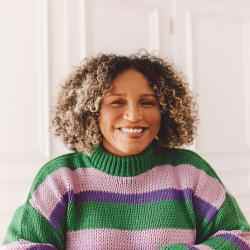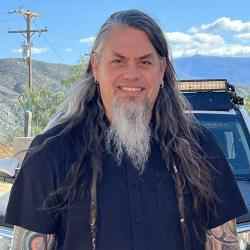Introducción
Mariana is reshaping how diversity is understood in the media sector, through a global community of diverse journalists and media outlets that are unlocking their changemaking potential and creating new narratives worldwide.
La idea nueva
Increasing Diversity, Equity, and Inclusion (DEI) in the media sector is a priority for many organizations. Providing the public with diverse and representative content, training marginalized groups in media production, professionalizing alternative media outlets, and creating alliances to ensure the widespread coverage of underrepresented groups are some of the most frequently used strategies to achieve this goal. Nevertheless, no solution has simultaneously focused on changing the self-perception and the intrinsic motivation of both journalists coming from minority backgrounds (women, LGBTQIA+, Afro descendants, people with disabilities, indigenous, and migrant) and media outlets. These are two key elements that Mariana has identified as essential to profoundly change the media system.
Mariana created Chicas Poderosas (Power Girls) in order to bring resources, agency, leadership, and achievements to journalists coming from minority groups that have been systematically underrepresented or misrepresented in society and, at the same time, to create the conditions for media outlets to be part of the change. Thanks to Chicas Poderosas, journalists understand the power they have to speak up and claim their spot in the media sector, and they acquire the concrete skills needed to take their career to the next level, boost entrepreneurial projects and opportunities, and re-claim their position in leadership. On the other hand, media outlets take a step beyond giving coverage to DEI topics and critically revisit their leadership culture and diversity bias in order to change the way stories are told.
As a global community of diverse journalists and outlets, Chicas Poderosas serves not only as a space for journalists to connect and share knowledge and experiences, but also as a network to create collaborative journalism projects, change the way stories are told, and transform the narrative around social and political issues affecting minorities, especially in Latin America, Europe, and the USA. The frame change sought by Mariana is a media sector where everyone’s voice is heard equally and the underrepresented take advantage from their diversity to get access to new intra- and entrepreneurial opportunities and push forward diverse leadership. She envisions a media sector where diversity is the lever that removes representation mistakes and creates spaces for meaningful dialogues to change the public debate.
The historical moment we are living in is a huge opportunity for Mariana’s solution to be scaled up globally, since DEI is becoming a key element in every organization. Chicas Poderosas has started a Country Ambassador program where each country has a team of diverse co-leaders in charge of cultivating and growing the local network. This way, the global community set up by Chicas Poderosas is decentralized, self-organized, and self-led, where each local chapter has the resources and the social capital needed to create a powerful strategy and enhance the “network effect” that will allow this model to become mainstream globally.
El problema
The media sector is affected by a substantial lack of diversity in terms of voices and stories. According to the Global Media Monitoring Project, 73% of the top management jobs in the media industry are occupied by white men, compared to 27% occupied by women. In terms of gender, women represent only a third of the full-time journalism workforce, although the trend in recent years has been positive. In terms of race, across the main 100 global media outlets, only 18% of their top editors are non-white.
Although societies are changing rapidly, newsrooms are still predominantly white and from a middle-class background. In Latin America, for example, indigenous people represent only 3% of newsroom employees, while trans and non-binary people do not even reach 1% of the employee population. While media organizations continue to use the same patterns for hiring, promotion, and management styles, these minorities will remain out of the conversation, sustaining the lack of diversity in the editorial agenda.
As a society we still accept and engage with patriarchal, colonial, and white supremacist ways of leading not only media and organizations but also countries and societies. These processes are significantly ingrained in all walks of life, and the media scene exacerbates the situation. The invisibility of underrepresented voices and stories in the media leads to a lack of understanding, misinformation, more discrimination, and polarization. And when news coverage has a limited perspective which excludes diversity issues from public debate, it perpetuates inequalities, stereotypes, and a lack of representation in policies.
Even now that many outlets are looking for a more diverse cross section of the population of reporters, there is a shortage of qualified professionals due to a historic lack of access to resources and training. Many of these minorities have professional skills gaps and an insufficient educational background. Without specific training, diverse candidates find it more difficult to work in traditional media outlets or create their own venture.
La estrategia
In 2013, Mariana created Chicas Poderosas, a feminist organization aimed at unlocking the full potential of women to occupy leadership positions in the media sector and tell underrepresented stories from their perspectives. Based on exhaustive research of the problem, Chicas Poderosas has evolved to be a transversal global organization that includes and connects LGBTQIA+, Afro descendants, people with disabilities, indigenous, and migrants with the goal of having a diverse, inclusive, and representative media sector.
To achieve this goal Mariana has developed a threefold strategy: 1) Diverse Voices: Working with journalists from diverse communities; 2) Diverse Outlets: Working with media outlets; and 3) Diverse Stories: Promoting collaborative journalism with both.
1. Diverse Voices: Working with journalists from diverse communities
Chicas Poderosas fosters critical awareness, leadership, and cutting-edge skills in areas that are generally not covered in formal journalism degrees. To do so, Mariana has created different training opportunities that are spread throughout the community, via calls, social media, and websites, where all applications are accessible as they are launched. To date more than 10,000 professionals of the media sector from 60 different countries have reinforced their self-awareness, leadership, and entrepreneurial potential thanks to Chicas Poderosas.
First, Mariana launched the Mediathons, interdisciplinary and collaborative spaces where 100 journalists come together for two days to create multimedia stories on underrepresented topics, including violence against journalists, teenage pregnancy, trans femicides, the role of women in rural community radio stations, and the gender perspective in the environmental debate. Mediathons are held three times a year and the stories are then published in various media outlets. For example, two years ago, 300 women were trained, and 26 stories were produced and published in national and international media outlets across Latin America. One of the topics workshopped was the size of the clothes, as 7 out of 10 women in Argentina couldn’t find clothing of their size. They succeeded in making the issue a trending topic (#mybodyisnottheproblem), influencing the public debate and finally contributing to changing a law which now obligates the clothes industry to offer more sizes.
Second, Mariana created the New Venture Lab, a 20-week program of incubation for CEOs of independent media outlets, aimed at providing education, mentorship, and funding opportunities to women and other diverse people taking on entrepreneurial roles as CEOs of their own companies. In only two editions, Chicas Poderosas has generated an impact on 100 media outlets from different parts of Latin America by fostering their strategies, innovation capacities and leadership. In Brazil, for example, Chicas Poderosas has strengthened the work of Mídia Ninja (Independent Narratives, Journalism and Action), a media network operating in more than 250 cities across the country.
Finally, Martiana launched Women, Power and Media, an online training program aimed at supporting Spanish-speaking women and non-binary people to advance in leadership positions and build inclusive, diverse, collaborative, and innovative workspaces. To do so, they reflect on how to eliminate prejudices, break the glass ceiling, and deal with discrimination of all kinds within the media. One key element of the course is to make the participants aware of the importance of knowing their own personal story and cultivating self-confidence and inner motivation, which in turn radically increase the trust amongst the community and the embeddedness of Mariana’s solution.
2. Diverse outlets: Working with media outlets
Mariana has built a six-week MOOC (massive online open course) called Modelo para Armar, which is a training program for media professionals aimed at embedding diversity and inclusive leadership in their organizational culture. It addresses, discusses, defines, redefines, questions, deconstructs, and hacks the spaces in which journalism is carried out, covering topics such as intersectionality, race, ethnicity and power, people with disabilities, alternative economic and market models, gender violence and disputed genders. It begins by analyzing the biases of the participants, helping to make them conscious of their prejudice, as this is the turning point for creating more inclusive work environments and recruiting more diverse profiles. Diverse recruitment will bring about the desired changes only if inclusive environments are put in place, otherwise the recruit will be uncomfortable and will most probably end up leaving.
Modelo para Armar is based on a team approach working from differences and not similarities. Hence, it is an invitation to reflect and create new ways of doing journalism based on the experience of women, LGBTQIA+ and other people coming from diverse communities. To date, 75 media outlets globally have changed their leadership culture and experimented new forms and formats of journalism communications based on the experience designed by Mariana and Chicas Poderosas.
3. Diverse Stories: Promoting collaborative journalism with both
The decentralized networks created by Chicas Poderosas make it possible for teams to collaborate across borders on shared journalism projects, in order to investigate and report on underrepresented social and political topics of their interest. The objective is to firmly change the narrative around these topics, place them on the news agenda, and generate quality multimedia content with a DEI perspective. The production of this international newsroom is distributed through different platforms and media outlets, reaching a wide audience, and raising awareness of these topics on the public agenda.
An example of a collaborative and narrative-changing journalism project born within Chicas Poderosas is Los Derechos no se Aislan (Rights should not be quarantined), created in Argentina during the pandemic to shed light on the inequalities existing in sexual and reproductive health. 45 journalists collected data and co-created 24 stories covering topics such as access to abortion, contraceptives, respected delivery plans and comprehensive sexual education in the different provinces of the country. The stories were told on a microsite through chronicles, videos, podcasts, and complemented with data visualizations and illustrations. In the first week of dissemination, Los Derechos no se Aislan was covered by more than 100 local, national, and international media such as the Washington Post, AJ+ and Open Democracy, among others. It was cited in the Chamber of Deputies of Argentina during the debate on legal, safe, and free abortion, which later became law in December 2020. It had media impact in Venezuela, Puerto Rico, and in four global media outlets. In addition, it also set an important precedent to change regulations and policies on topics that are still very much underrepresented, in ways that directly affected journalists themselves; as an example, Santa Cruz province (Argentina) finally changed its policy on transgender surgery, guaranteeing Angie, a trans woman and one of the journalists involved, free access to the surgery she needed.
In terms of replication, the first Mediathons launched by Chicas had already spurred the creation of national and transnational networks in Mexico, Colombia, and Argentina, opening up different opportunities for scaling up Mariana’s solution. For example, Chicas Colombia launched a network of fact checkers in WhatsApp ahead of Colombia elections, debunking fake news regarding minorities.
Mariana has since created a Country Ambassador strategy which localizes and consolidates the community in different countries. Ambassadors are co-leaders who receive specific training to start a local chapter of Chicas Poderosas. In 2020, Mariana carried out an 11-week program in which women from 17 countries of Latin America, Europe, and the USA participated, in order to set up a local network. Besides this, Chicas Poderosas is multiplying indirect impact through strategic alliances with national, regional, and international communications media, networks of journalists, activists, defenders, and influencers, such as Alma Preta, Nós Mulheres da Periferia, Mídia Ninja, Distintas Latitudes, Verificado MX, Fundación Gabo, Internews, Azmina, Open Society Foundations, UN Women, and global tech organizations such as Meedan and Google.
La persona
Mariana was raised in the south of Portugal where there are not many opportunities beyond agriculture and where in her words “a patriarchal, colonial, and racist culture reigns.” As a little girl Mariana was told by her father “there are many things that you cannot do because you are a woman." Mariana was inspired to challenge her father and the system he represented, and she hasn't stopped since.
Her first achievement was to become the swimming champion of her country, proving her father wrong. At school she always stood out, she was always the delegate of her class, and she pushed for the voices of vulnerable girls and boys to be heard. She studied both science and arts as she always felt equally attracted by both areas.
She was the first Portuguese employee in The Guardian where she worked as a communication designer and worked on all the data visualization for WikiLeaks, a fact that has given her a lot of recognition in Portugal and in the journalistic world for being one of the few women working in technology and media. In 2010, Mariana was one of only three women in a team of more than two hundred people. Within The Guardian, Mariana had an unsettling experience with her female boss, a woman who wanted to block her professional development and didn't promote her. Having personally experienced the lack of a safe environment for women and encouragement to grow, as well as her own voice being ignored, Mariana decided to leave when she realized there was little room for female leadership and female role models. She later received a scholarship from the International Centre for Journalism to go to Costa Rica to create teams of artists, developers, and journalists in order to improve visual and interactive storytelling in Latin American media. One goal of this program was to create a body of technology-savvy women in Latin American newsrooms.
Despite the essence of this opportunity, again she observed the discrimination that women suffered in the media and the difficulties they encountered. For this reason, she began to develop Chicas as a hobby and informally held the first training sessions with journalists in Chile. She continued developing Chicas whilst working and was awarded an entrepreneurial journalism scholarship at Stanford (2014-2015). Mariana used this experience to consolidate Chicas Poderosas and created the first Chicas Poderosas meeting at Stanford University (even though they tried to forbid her from holding the event) to attract ambassadors from Latin America, the US, and Europe, financed by Google.
She led Chicas from Latin America from 2015 until the pandemic where her impact and partners were very consolidated. Now she is leading Chicas from Portugal to attract new partners and scale her impact in Europe.




